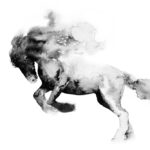
TCM and Western Medicine—True Complementary Care
Traditional Chinese medicine (TCM) and its Five Element energetic framework allow for a 100% natural way to prevent and address health conditions at the body-mind-spirit level. Some people, however, are reluctant to leave their familiar system of medicine behind and jump head-first into this ancient self-healing method. The good news is, TCM and Western medicine can be used side-by-side for a truly complementary approach to wellness.
TCM and Western medicine each have their own principles, theories and strengths. So here are a few things to be aware of when looking at integrating the two approaches.
TCM is by-product of a deep spiritual practice of ancient Qigong masters, while Western medicine was developed primarily through scientific experimentation and observation. TCM is an energy-based medicine that looks at the body, mind and spirit from the perspective of Oneness or inseparability. Western medicine is a technology-based system of analysis, differentiation and separation, focusing on various parts of the body. You could say that TCM has a specialty in the body’s “software or energy system,” while Western medicine has a specialty in its “hardware or physical systems.”
Let’s look at four ways that TCM and Western medicine complement each other. The first is for pain management. Prescription medication often causes side effects that can be lessened by a second prescription drug. Unfortunately, the second drug produces its own side effects. TCM understands the root cause of side effects caused by Western medications and alleviates them so the body can come back into balance and the patient can continue treatment. Many people are familiar with acupuncture for pain; however, its efficacy goes far beyond pain since it allows the body’s energy system to rebalance itself. This, in turn, sparks the body’s ability to self-heal.
Another way TCM and Western medicine complement each other is with conditions like hay fever, which results, according to TCM, when the body isn’t strong enough to smoothly navigate Nature’s seasonal energy transition—be it spring, fall, or both. Here, TCM works well with Western medications to diminish and eventually heal hay fever symptoms by addressing the root cause.
A third way TCM and Western medicine can team up is in an adjuvant cancer therapy called tamoxifen—prescribed as a five-year, follow-up treatment for breast cancer. Unfortunately, tamoxifen’s side effects—night sweats, hot flashes, insomnia, among others—are so severe that 50 percent of women stop therapy. This step alone can cause great fear in a woman who has to abandon treatment. This kind of deep fear can also prompt new cancer to occur. TCM can help relieve tamoxifen’s side effects with acupuncture, acupressure, Qigong, herbal therapy and lifestyle changes, allowing the patient to continue treatment.
A fourth way TCM and Western medicine work well together is in the area of infertility. Many couples try to become pregnant for years before turning to IVF treatments. Undergoing IVF creates an added burden for a woman whose organ systems are most likely not functioning in harmony to begin with. If the couple gives their bodies time to rest and rebalance, and works with TCM to improve the woman’s overall health and energy flow, couples often see tremendous benefits and real success.
In China, it’s common practice for traditional Chinese medicine and Western medicine to be practiced side-by-side. Hospital and clinics know how, when, where and why these approaches can be integrated for optimum patient results.
This October, more than a dozen presenters will come together at the Building Bridges of Integration for TCM conference, where conference-goers will be introduced to a revolutionary framework that correlates ancient wisdom with modern science. Presenters include Stephen Cowan, Thea Elijah, Haihe Tian, Decheng Chen, Ruan Jin Zhao, Brother/Doctor Bernard Seif, Tonya Heyman, Melissa Thiel and Larry Stoler, and more. We invite you to join us for this unique educational forum and life-altering experience.
Register at www.tcmconference.org.










